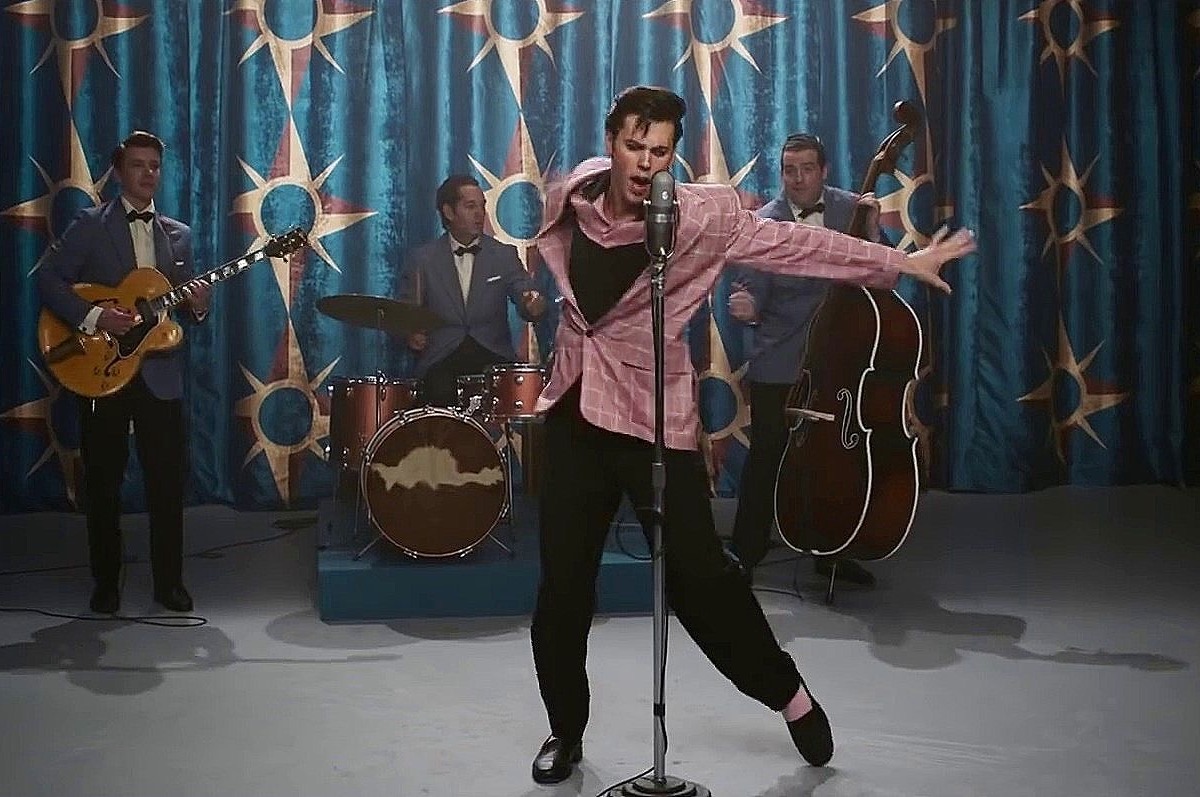FILM REVIEW
ELVIS
Rated PG-13
159 Minutes
Released June 24th

Elvis is such an icon of music and style of the mid 20th Century in our country that there are volumes written about him by serious historians. My 7-year-old self certainly had no idea that his rendition of Big Mama Thornton’s “Hound Dog” that I listened to on my transistor radio carried so much scholarly weight. This movie made me realize that this forbidden personality my classmates and I used to laugh about on the playground was a great musician with his own unique style who drew from the black and white music made before his time, and left a treasure trove of his own to future musicians.
Baz Luhmann has crafted this film like a symphony, as if you would start building a song from a beat, starting from Elvis’s childhood growing up near black neighborhoods in the racist South of the 1940’s. The crescendo of Elvis’s rise to stardom is palpable, then the andante of his fall into drugs and excess as he becomes a brittle caricature is tragic. At the climax, we realize the music never “leaves the building.”
Elvis is a legend of our time. He consumed the culture around him in Tupelo, Mississippi and Memphis as he was growing up. He tuned into radio stations playing gospel, rhythm & blues, pop and country, and he bought those records. He was a unique musician who created something no one else ever could. Where the extraordinary black music legends of his time were never able to reach the same level of fame, he harnessed what he could master of their blues born of pain and mixed it with his own style, and “Colonel“ Tom Parker, played in the film by Tom Hanks, was shrewd enough to recognize the marketability of this phenomenon to the white mainstream of the country at the time.
Baz Luhrmann makes his films through the lens of a musician, so he was a perfect fit for Elvis. He was announced as attached to the project in 2014. In March 2019 Hanks was cast as Parker. In July 2019, Austin Butler won the role of “Elvis” over several high profile actors. The shoot began in early 2020 and was halted by COVID, finally resuming in September 2020, and wrapped in March 2021.
Austin Butler had made it his mission to win the role of “Elvis.” He immersed himself in the music and the person, and he “became” Elvis for two years, an experience both enhanced and made more difficult by the pandemic hold on production. His rendition of Elvis’s voice and gyrations as his career is beginning to take off is uncanny and eerily spot-on. The scenes of Elvis singing in his later years are Butler visually, over Elvis’s actual recordings. There Butler captures the changes in the singer’s movement as drugs affected him. A relative unknown, Butler was an actor who had taken on the challenge of the craft in the same way he took on this role. After starting out in his teens as a recurring extra on a TV series for 2 years, he had done a handful of appearances in TV and films. He seems to be a chameleon, changing his look drastically, everything from rocker with long blonde hair to geeky looking nerd. His presumably self-written bio on IMDb states, “his big break (relatively speaking) was in 2007, as casting directors started to recognize him from his many, many auditions…” The team of hyper-dedicated actor Austin Butler and Baz Luhrmann, the master of rhythm, pathos and high drama, are perfectly suited for their subject here. They have created a film that is entertaining and inspiring, that swirls together the history and humanity of Elvis’s effect on his world.
Kathryn Whitney Boole has spent most of her life in the entertainment industry, which has been the backdrop for remarkable adventures with extraordinary people. She is a Talent Manager with Studio Talent Group in Santa Monica. kboole@gmail.com













